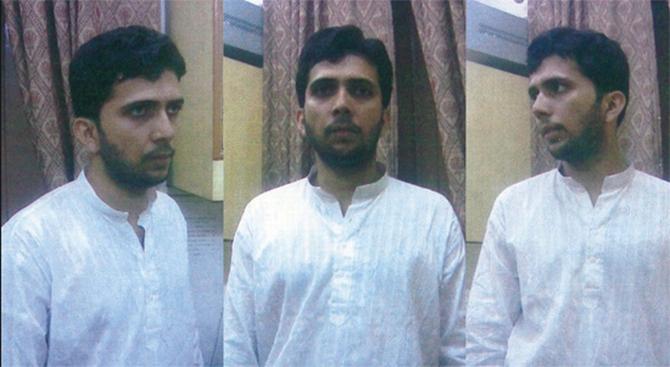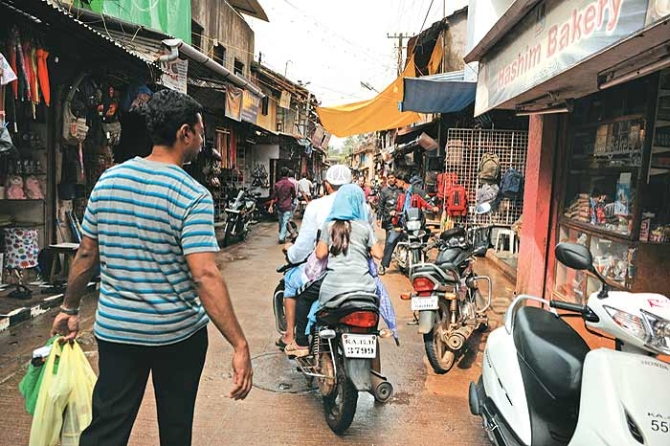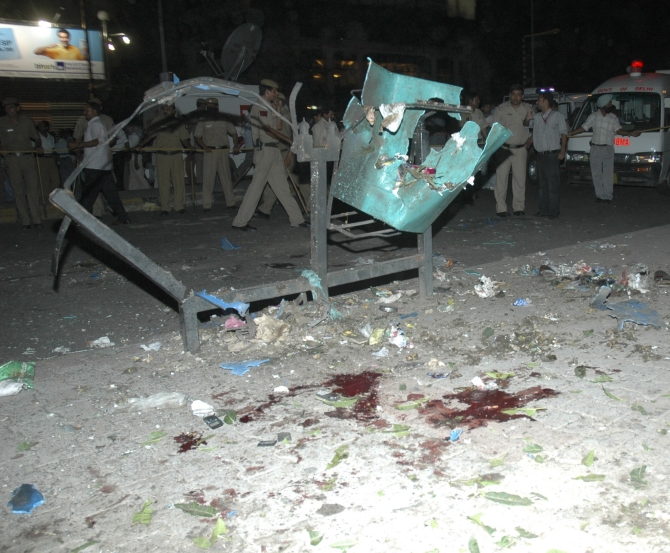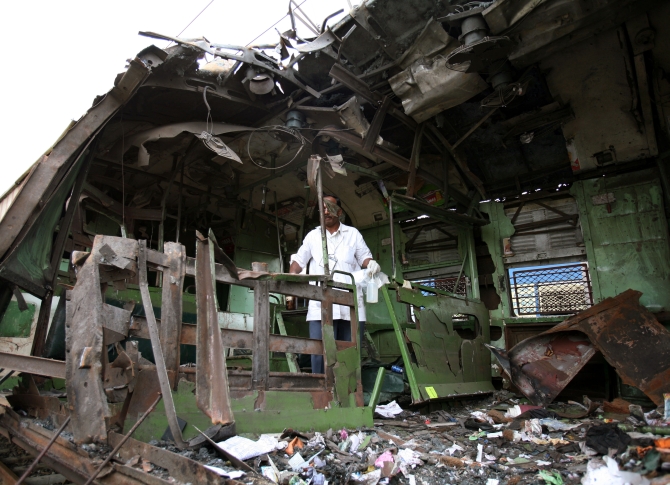
Branded as the face of modern day terrorism, Zarar Ahmed Siddibaba alias Yasin Bhatkal of the banned Indian Mujahideen arrested on Wednesday night gained cult status in the homegrown terror network after the 2008 Delhi serial blasts.
After he managed to give the slip to police on two occasions, 30-year-old Yasin, one of India's most wanted terrorists, is a prize catch for which Intelligence Bureau sleuths worked day and night after picking up his presence in Nepal.
…

Scores of people have lost their lives in terror attacks in which Yasin had a hand. Yasin is stated to have planted bombs personally in some attacks
Caught on close-circuit television at least on three occasions, he managed to give the slip to the Mumbai and Kolkata police twice before the long arm of law caught up with him at the Indo-Nepal border near Gorakhpur on Wednesday night.
Yasin was one of the several cases where well-educated youths became radicalised and took to terror activities.
…

At the age of 21, Yasin had emerged as one of the close confidante of ganglord-turned terrorist and founder of IM Amir Reza Khan and was the key figure in ensuring that bombs and anti-national material were transported from a beach house in Karnataka's coastal district of Bhatkal to other parts of the country in 2004.
His first brush with terror is believed to have started from Vitthalamakki and Hakkalamane in North Karnataka from where bombs were supplied to specialised Indian Mujahideen training camps spread across the country.
…

Yasin was detained in Kolkata and Mumbai from where he managed to get released by concealing his identity.
He was caught on CCTV just before the German bakery blast in Pune in 2010 and later at blasts at Cyberabad's Dilkhush Nagar earlier this year. Earlier, he managed to flee less than an hour before police raided the IM safe house in the Bhadra forests outside Chikmagalur in October, 2008.
Yasin is believed to be jailed in November 2009 and walked out on bail after he had identified himself as Muhammad Ashraf. His questioning will be helpful to the security agencies in understanding the rise of the modern day terror in India.
After the Delhi serial blasts in 2008, his role started surfacing in a big way during a check on his background and previous involvements.
…

Yasin was alleged to be the mastermind of serial train blasts that rocked Mumbai megapolis in 2006 in which 209 people were killed.
Educated from AnjumanHami-e-Muslimeen school, the 1983-born Siddibapa was introduced to other members of the IM as a trained engineer and grew as an explosives expert.
Unani medicine practitioner-turned-Islamist Iqbal Ismail Shahbandri along with his brother Riyaz Ismail Shahbandri, now believed to be hiding out in Karachi, are understood to be his mentors in joining IM, a group which was formed mainly by the disgruntled members of SIMI who believed that the organisation was unable to do anything.
Yasin was a core member of IM, which had young men like Riyaz Shahbandri, Abdul Subhan Qureshi and Sadiq Israr Sheikh and Amir Reza Khan. Khan helped him as well as other youths in getting training in Lashker-e-Tayiba camps post Gujarat riots in 2002.
Yasin was the overall in charge of logistics and arrangements -- a task that reflected his status. His brother Abdul Samad was arrested by Mumbai police's Anti-Terror Squad and mistakenly identified as Yasin. However, he had to bite dust after his identity was proved.
...